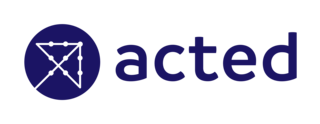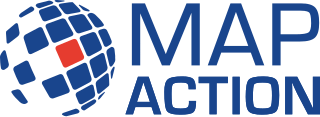
Norwegian People's Aid was founded in 1939 to provide post-conflict reconstruction assistance and humanitarian relief during conflicts. NPA is now engaged in more than 33 countries in de-mining, humanitarian relief, promoting democratization; the rights of indigenous people, equality; and fair distribution of power and resources. NPA currently operates de-mineing activities in 16 countries and played a central role in the International Campaign to Ban Landmines and the Convention on Cluster Munitions which was signed in Oslo in 2008.

Emergency is a humanitarian NGO that provides free medical treatment to the victims of war, poverty, and landmines. It was founded in 1994. Gino Strada, one of the organization's co-founders, served as EMERGENCY's Executive Director. It operates on the premise that access to high-quality healthcare is a fundamental human right.

The international response to the 2005 Kashmir earthquake was widespread and immediate, as many countries, international organizations and non-governmental organizations offered an abundance of relief aid to the affected regions − particularly Pakistan, which was hit the hardest due to the earthquake's epicentre being around Muzaffarabad, the capital city of Pakistani-administered Azad Jammu and Kashmir. The aid given was in the form of monetary donations and pledges, as well as relief supplies including food, various medical supplies, tents and blankets. Rescue and relief workers as well as peacekeeping troops were sent from different parts of the world to the region, bringing along rescue equipment, including helicopters and rescue dogs. The earthquake displaced some 3.3 million people, while killing around 80,000–100,000.
Medical Emergency Relief International (MERLIN) is a former British international non-governmental health charity which sent medical experts to global emergencies.
FSD is a Swiss non-governmental organisation specialising in mine action. Since its creation in 1997, FSD has carried out operations in some 30 countries on four continents. Its programmes include the following four components: humanitarian demining, explosive ordnance risk education, victim assistance, and stockpile destruction and management. In 26 years, more than 1.4 million items of explosive ordnance have been neutralised by FSD.
A mine clearance organization, or demining organization, is an organization involved in the removal of landmines and unexploded ordnance (UXO) for military, humanitarian, or commercial reasons. Demining includes mine clearance, as well as surveying, mapping and marking of hazardous areas.

Medair is an international non-governmental organisation (INGO) whose purpose is to relieve human suffering in some of the world's most remote and devastated places. Medair aims to assist people affected by natural disasters and conflict to recover with dignity through the delivery of quality humanitarian aid.
Focus Humanitarian Assistance is an international group of agencies established in Europe, North America and South Asia to complement the provision of emergency relief, principally in the developing world. It helps people in need reduce their dependence on humanitarian aid and facilitates their transition to sustainable self-reliant, long-term development.

The Humanitarian Overseas Service Medal is an award in the Australian honours system. The award is presented to those who perform humanitarian service in a foreign country, in particular those working in dangerous environments or conditions or during a humanitarian crisis. The award was introduced by letters patent on 16 April 1999, following a review of the Australian honours and awards system beginning in 1995.

Acted is a French international solidarity non-governmental organization (NGO), founded in 1993. It is headquartered in Paris.

Malteser International is an international non-governmental aid agency for humanitarian aid of the Sovereign Military Order of Malta. Developed in 2005 from the foreign aid service of Malteser Germany, and having the status of an independent eingetragener Verein since 2013, the agency has more than 50 years of experience in humanitarian relief. It currently implements around 100 projects in some 30 countries in Africa, Asia, Europe, Middle East and the Americas. The organization's General Secretariat is located in Cologne, Germany with regional headquarters for Europe and the Americas located in Cologne and New York City respectively. The membership of Malteser International consists of 27 national associations and priories of the Sovereign Military Order of Malta, who are responsible for supporting the organization within their jurisdictions.

The Emergency Architects Foundation is a French non-governmental organization, reconnue d'utilité publique. It is organised as a not-for-profit foundation with the French Order of Architects as supporters and is accredited by the United Nations and the European Union. The Emergency Architects Foundation is also present in Australia and in Canada . The aim of Emergency Architects is to bring help and technical aid to the victims of natural, technological and human disasters, not only in safety and security evaluations of the populations but also in post-disaster reconstruction programs focused on long-term development and risk mitigation.

International health, also called geographic medicine, international medicine, or global health, is a field of health care, usually with a public health emphasis, dealing with health across regional or national boundaries. One subset of international medicine, travel medicine, prepares travelers with immunizations, prophylactic medications, preventive techniques such as bed nets and residual pesticides, in-transit care, and post-travel care for exotic illnesses. International health, however, more often refers to health personnel or organizations from one area or nation providing direct health care, or health sector development, in another area or nation. It is this sense of the term that is explained here. More recently, public health experts have become interested in global processes that impact human health. Globalisation and health, for example, illustrate the complex and changing sociological environment within which the determinants of health and disease express themselves.
MERCY Malaysia or Malaysian Medical Relief Society is a non-profit organisation focusing on providing medical relief, sustainable health related development and risk reduction activities for vulnerable communities in both crisis and non-crisis situations. As a non-profit organisation, MERCY Malaysia relies solely on funding and donations from organisations and generous individuals to continue their services to provide humanitarian assistance to beneficiaries, both in Malaysia and internationally. The organisation is a registered society according to the Societies Act 1966 in Malaysia, and the headquarters is in the capital city of Kuala Lumpur.

MapAction is a non-governmental organisation that specialises in providing mapping for humanitarian emergencies. MapAction is a registered UK charity.
International Development and Relief Foundation (IDRF) is a Canadian non-profit organization dedicated to linking Canadian and Muslim communities with overseas development projects, both humanitarian emergency assistance and long term development projects in Asia, Africa, the Middle East, Eastern Europe, and the Americas, based on Islamic principles of human dignity, self-reliance, and social justice.
IsraAID is an Israel-based non-governmental organization that responds to emergencies all over the world with targeted humanitarian help. This includes disaster relief, from search and rescue to rebuilding communities and schools, to providing aid packages, medical assistance, and post-psychotrauma care. IsraAID has also been involved in emergency response and international development projects in more than 60 countries, with focuses on Water, Sanitation & Hygiene, public health and medical care, education, and mental health and protection.
INTERSOS is an international humanitarian organization, based in Italy, which intervenes in emergencies and crises to bring immediate aid to people whose lives are threatened by conflict, violence, extreme poverty, and natural or artificial disasters.
The Office of U.S. Foreign Disaster Assistance (OFDA) was an organizational unit within the United States Agency for International Development (USAID) charged by the President of the United States with directing and coordinating international United States government disaster assistance. USAID merged the former offices of OFDA and Food for Peace (FFP) in 2020 to form the Bureau for Humanitarian Assistance (BHA).
Sahana Software Foundation is a Los Angeles, California-based non-profit organization founded to promote free and open-source software (FOSS) for disaster and emergency management. The foundation's mission statement is to "save lives by providing information management solutions that enable organizations and communities to better prepare for and respond to disasters." The foundation's Sahana family of software products includes Eden, designed for humanitarian needs management; Vesuvius, focused on the disaster preparedness needs of the medical community; and legacy earlier versions of Sahana software including Krakatoa, descended from the original Sahana code base developed following the 2004 Indian Ocean tsunami. The word "Sahana" means "relief" in Sinhalese, one of two national languages of Sri Lanka.










